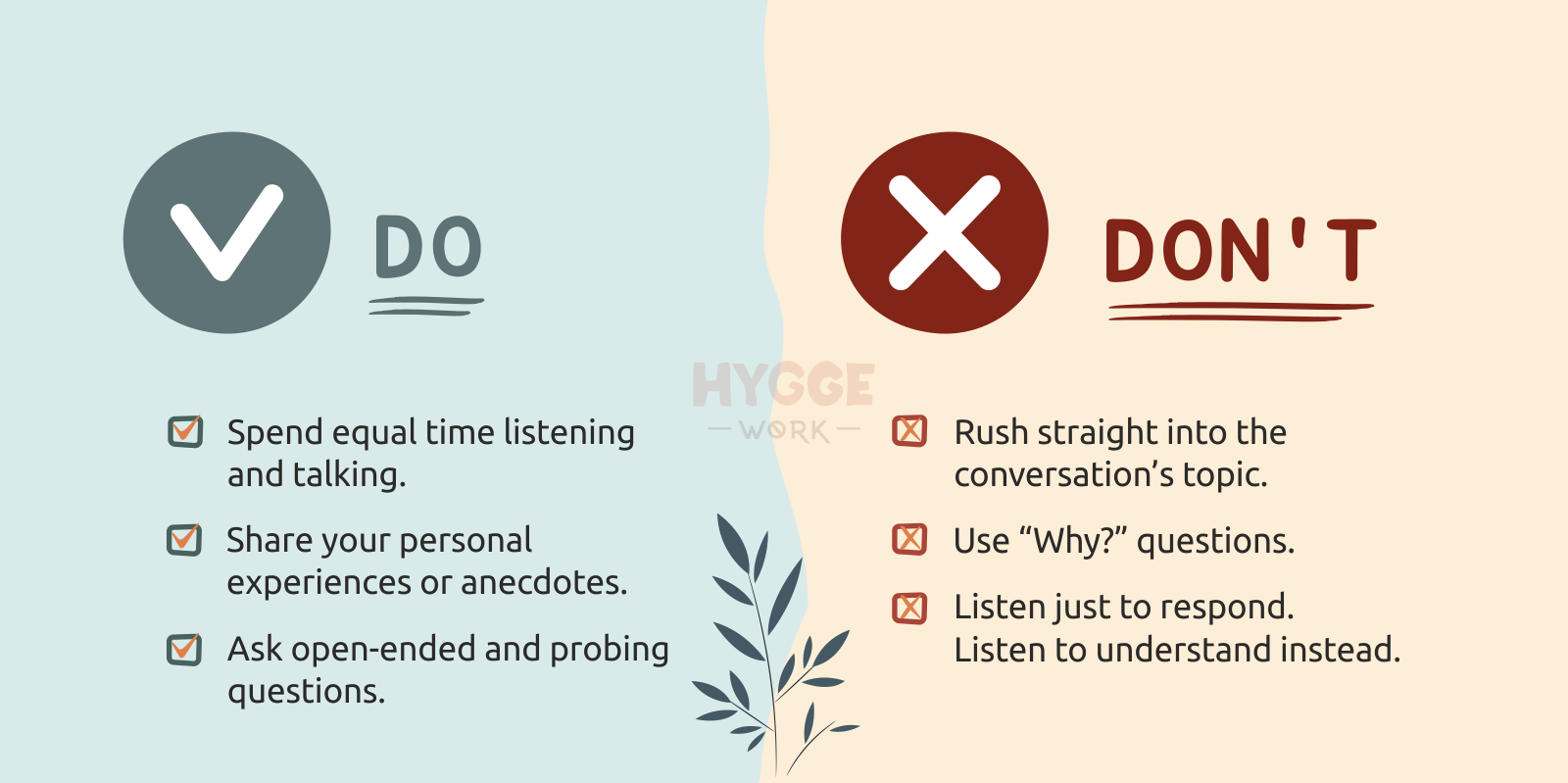Building Deeper Connections with Others

In a fast-paced world filled with distractions and superficial interactions, engaging in meaningful conversations has become a rare occurrence. With colleagues, family, friends, and even strangers, the ability to engage in deep, authentic conversations is a skill worth honing. Meaningful conversations not only foster stronger relationships but also provide opportunities for personal growth and understanding. Here are some tips to help you cultivate meaningful conversations in various aspects of your life.
1. Connect
One of the fundamental elements of meaningful conversations is making connections. Building connections can be challenging, so it’s important to have a few tricks up your sleeve. Here’s one: Small talk may seem trivial, but it serves as a powerful tool for self-disclosure. By sharing personal experiences or anecdotes, you show your vulnerability and humanity, making yourself relatable to others. This relatability fosters a sense of comfort and ease, helping to create a safe space for open and meaningful conversations.
2. Listen
Another essential tool is active listening. Active listening involves giving your full attention to the speaker and demonstrating that you are fully present and engaged. It requires attending to what is being said, paraphrasing to confirm understanding, and reflecting back the emotions inherent in the message. (e.g., “Sounds like that argument with your boss was really frustrating for you” and “Can you tell me a little more about what that was like for you?”). Active listening might be hard to practice, as sometimes you may sound unnatural. Keep trying, as practice makes perfect.
3. Engage
Connections are not only about being a good listener, but also about showing interest, and questions are the best way to do this.
Instead of asking questions that can be answered with a simple “yes” or “no,” opt for inquiries that begin with “What…?” or “How…?”. Open-ended questions allow the conversation to flow naturally and invite the speaker to delve deeper into their perspective. For example, instead of asking, “Did you enjoy your vacation?” you could ask, “What was the most memorable part of your vacation?”
Another great way to dive deeper into a topic is probing questions. These help uncover underlying thoughts, motivations, and emotions. Phrases like “What else?”, “What does that mean to you?”, or “Help me understand” lead to opening up new perspectives and encouraging self-reflection.
To ensure that responses are grounded in personal experiences, ask respondents to think back to specific events. This technique allows individuals to recall their own experiences, attitudes, and beliefs, as opposed to having responses based on “what others have said” or popular opinion. By prompting them to reflect on their personal experiences, you can foster a more authentic and meaningful conversation.
While examples can be helpful in illustrating a point, they can inadvertently limit respondents’ responses by narrowing their focus. Instead, save examples for probing questions after individuals have shared their initial input. This approach encourages them to think beyond the given examples and offer their unique perspectives.
One important point to avoid in meaningful conversations is asking “Why?” questions. “Why” can put respondents on the defensive and may come across as interrogative, inflammatory, or rude, triggering negative associations. Instead, consider using alternatives. For instance, rather than asking, “Why do you prefer that type of program?” try asking, “What are the major reasons you prefer that type of program? What do you like about it?”

Meaningful conversations are more than just exchanges of words—they are opportunities for growth, understanding, and building meaningful relationships. So, the next time you find yourself in a conversation, embrace these tips and unlock the power of meaningful communication.
